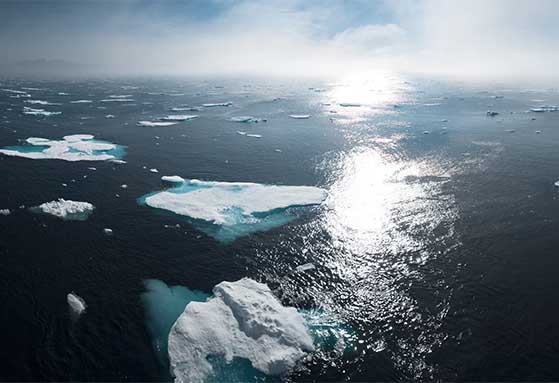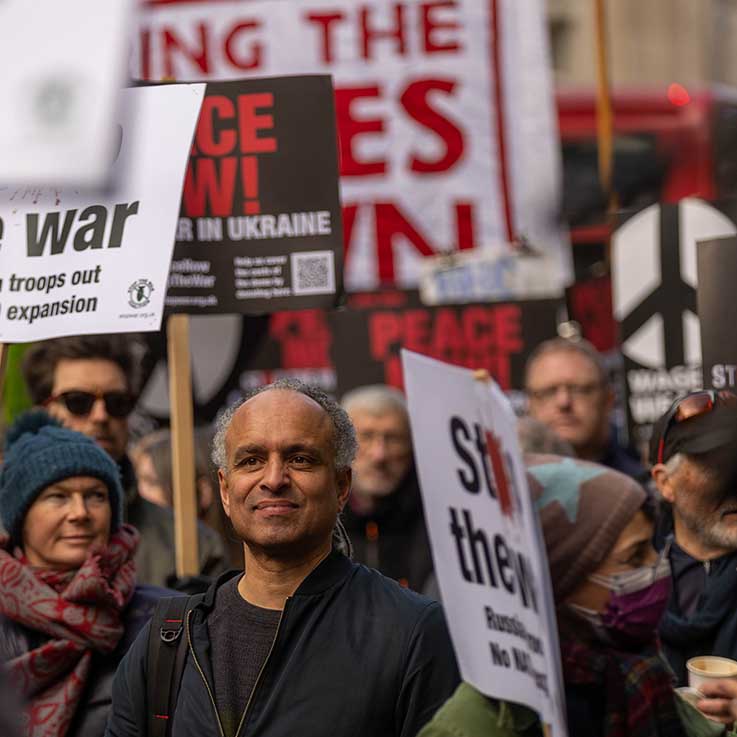… continued from Part 1 ….
[ezcol_1half] [/ezcol_1half] [ezcol_1half_end]
[/ezcol_1half] [ezcol_1half_end] Left, the message; right, the messengers[/ezcol_1half_end]
Left, the message; right, the messengers[/ezcol_1half_end]
[ezcol_1half] [/ezcol_1half] [ezcol_1half_end]
[/ezcol_1half] [ezcol_1half_end] Left, the truth; right, the witness[/ezcol_1half_end]
Left, the truth; right, the witness[/ezcol_1half_end]
*
In a piece replicated in full on this site – Who pays for the US war machine? – my old friend Bryan Gocke noted that despite running a colossal national debt, the USA sustains:
… military expenditure greater than the next 10 highest spending countries combined.
How?
Through the dollar’s role as the global currency of business and inter-governmental payments. US dollars are spent abroad on building and maintaining military bases and associated infrastructure …
He goes on to explain that the dollar is a fiat currency, conjured at will as electrons dancing into long lines of zeroes on Federal Reserve screens. (Nixon having decoupled dollar from gold fifty years ago in a break, advertised then as temporary, with the 1944 Bretton Woods Agreement 1 which, overriding John Maynard Keynes’s desire for a neutral bancor, 2 conferred world reserve status on a gold-backed dollar. 3 )
Conjured at will .. Dollars spent abroad are promissory notes without a repayment date. 800+ US military bases encircling the planet are ‘paid for’ in dollars which are then converted into the local currency (to pay suppliers and workers) by the host’s central bank, whose sole option for any surplus of accrued dollars is to use them to buy a different type of IOU in the shape of US Treasury Bonds 4 …
… which incur minimal cost to the US, and have little impact on its budget deficits.
This is what former French President Valéry Giscard d’Eistang had in mind when he spoke of “America’s exorbitant privilege”, 5 which, as Bryan notes, goes wider than military spending:
Most global trade is in dollars, creating the same build up in foreign central banks, and conversion to US Treasury Bonds. China is caught up in this due to its high exports of consumer goods to the US, while Russia’s gas and oil exports were until recently paid for in dollars.
… US debt is sustainable provided (i) there is no expectation that the US will ever pay off the principal, and (ii) the dollar continues to be the world’s reserve currency.
But what if the dollar lost that ‘exorbitant privilege’? How would The Exceptionalist Nation react to losing world reserve currency status even as oil began trading in yuan, local currencies or, as Libya’s Colonel Gaddafi at cost of his life advocated for a Pan Africa, a gold backed dinar? The answer throws a gigawatt beam on why the US rings the planet with military outposts, and why – once the hard-sell on ‘defending freedom’ is discarded as a self-serving lie revealed as such by a never ending parade of contradictions and selective application – its war machine has in this century alone, and funded by the rest of the world, slaughtered millions and sown chaos, impoverishment and terror in far off lands which posed no conceivable threat to ordinary Americans. 6
That answer is rooted in the fact that the American ruling class, and those of the west at large, have burned their bridges. With no way back to the days of industrial pre-eminence, their only viable course is to continue to exploit the labour and natural wealth of the global south within an imperialist world order characterised by the north to south export of monopoly capital, and south to north repatriation of profits.
One condition of that exploitation is military might. The other is dollar hegemony. Needless to say, the two are inextricably linked.
Like the west at large but on a bigger scale, the USA has deindustrialised massively these past four decades. 7 The logic of private profit unchecked by interventionist government 8 argued for the decidedly unpatriotic outsourcing of manufacturing to the cheaper labour pools and more ‘business friendly’ regimes of the global south. On the consequences for that global south, see my review of John Smith’s Imperialism in the twenty-first century. On the consequences for the FIRE economies of a global north led by rentier capital, see my review of Michael Hudson’s The Destiny of Civilisation: Finance Capitalism, Industrial Capitalism or Socialism.
It is that second set of consequences, for a deindustrialised west, which concerns me here.
*
As noted in part 1, the advent of farming 10-14,000 years ago created dependable surpluses of material wealth. These in turn created the conditions in which ruling classes, defined as such by monopoly ownership of some essential of wealth creation – land or irrigation water, capital or the producers themselves – could arise.
Though exploitative, warlike and cruel, these rulers oversaw advances in human productivity – up to the point where they didn’t, and had to be overthrown. Two examples being feudalism in 18th century France, and slavery in 19th century America. Both had come to stand in the way of the greater wealth creating capacity of industrial capitalism – even if accounts, then or later, of their overthrow did use more idealised language.

Marianne – “Liberty, Égalité et Fraternity”

Anti-slavery poster in 1836, 15 years before the American Civil War broke out. (Only later did Abolition as humanitarian imperative enter revisionist history as key to America’s Civil War. This National Geographic analysis has it as just one of many themes in Union war propaganda “portraying the patriotism of the cause, depicting Southerners as duplicitous and treacherous, promoting the abolitionist cause … and pok[ing] fun at Confederate leaders and the rebels in general.” )
A second historic legitimation of ruling classes was also noted in part 1:
From these dozen or so millennia of class societies of one form or another, an implicit social contract can be inferred. In return for the masses’ subservience, surrender of the surplus fruits of their toil and readiness to kill and be killed in – or nowadays simply to cheer on – its wars of plunder sold as virtuous …
… the duty of every ruling class has been to provide stability, security and the conditions in which a modicum of prosperity may be pursued. Peace at sword or gun point is no oxymoron. Not for nothing do we speak of a Pax Romana. History is riddled with evidence that exploited peoples will tolerate entrenched privilege and high (though not infinitely so) levels of social injustice if the only perceived alternative is the tyranny of lawlessness and destitution.
This implicit contract is now being broken. A ‘modicum of prosperity’ cannot be safeguarded, nor ‘the tyranny of lawlessness’ held at bay, in the aftermath of catastrophic climate change, or a thermonuclear war from which, as Nikita Khrushchev famously observed, “the survivors would envy the dead”. Yet both prospects now stare us in the face – whether we choose to meet their gaze, or play the ostrich.
Rising global temperatures are one sign of a planet trashed in the interests of elites for whom wealth creation planned by and for humankind is anathema. (Ecocide: the Mullah Nasruddin speaks!) Now, in Ukraine as in South China Sea, a US steered by the criminally insane is bent on taking us to the brink of WW3.
When the ice caps melt …

… and Armageddon knocks at the door …

… shoot the messengers!


*
The breach of contract I speak of flows from the reality that the capitalist mode of production, in the age of imperialism – north to south export of monopoly capital; south to north repatriation of profits – poses an existential threat to humanity and, lest we overlook this small detail, every other highly evolved life form too. 9

But unlike in late 18th century France and mid 19th century America, no clearly superior system is poised to replace capitalism in the age of imperialism. 10
More specifically, the broken contract I speak of is rooted in these conditions:
- Those who rule the deindustrialised west – which is to say, the rentiers whose monopoly ownership of finance capital and debt confers de facto ownership of the state – have no option but to continue exploiting the labour pools and natural assets of the global south. Capital-Labour relations studied by Marx and Engels have to a very high degree become North-South relations. 11
- Those who rule the deindustrialised west – its soaring inequality as dysfunctional as it is repugnant – now exploit differently. At home they are enriched less by surplus value 12 extraction (since value creation at home shrinks year on year) and more by the financing of debt in FIRE economies whose bloated credit, insurance, real estate and other non value producing sectors make GDP an unreliable metric of economic performance. 13
Speaking of debt, in 2023 Michael Hudson published The Collapse of Antiquity. It advances a simple thesis. In the early civilisations of Sumer, it explains, a new king would start his reign by cancelling debt. Why? Because interest on debt rises exponentially while wealth production – from which debt is paid – can at best rise logarithmically. The inexorable logic is therefore for power to accrue to a creditor oligarchy. The forgiveness of debt derailed this tendency, but the new king had to be powerful enough to force it through. To put this in today’s terms, he had to be the very thing liberals (labouring under the delusion that ours is a democracy rather than a creditor oligarchy) condemn in a Vladimir Putin or Xi Jinping.
He had to be An Authoritarian. How else could the king break the destructive – and ultimately self destructive – power of the oligarchs? It was their failure to do this, Michael argues, which brought down the civilisations of Greece and Rome: collapsing as they did under the weight of debt which could not be repaid but would not be forgiven.
Those wanting a more extensive summary of The Collapse of Antiquity – but lacking the funds or time to buy and read it, can access this interview with its author, and its follow up. But now it’s time to draw together the threads of a more than usually complicated post, and wrap up.
*
500 years of western ascendance are drawing to a close. Life itself is imperilled by an economic system, based on private profit and capital accumulation, whose laws of motion drive ongoing planetary plunder in the name of continuous but narrowly defined ‘growth’. To this threat we can add another. In the age of nuclear weapons the West is led by a superpower in decline but armed to the teeth, and with a proven capacity to put the interests of those who rule it ahead of every other factor. For their part, those who govern its vassals allies have a proven capacity to put the interests of Washington ahead of those of their own peoples.
Given these things, the rise of Russia and China, 14 and a global south seeing for the first time in half a millennium a viable alternative to subjugation – or at the very least, a bargaining chip in its dealings with the west – the future has never been more uncertain.
Compounding all this is the fact of the West’s financialisation and de-industrialisation. Should it lose its financial stranglehold on the global south – an outcome synchronised by the US dollar’s loss of global reserve status as the BRICS economies grow in number, confidence and clout 15 – its immediate prospects are bleak. Not only surplus values extracted in Asia’s sweatshops, but the leveraging of debt closer to home, must slow down and ultimately dry up.
My worries are not for those Western rentiers. They aren’t even for my own miserable skin; that of a septuagenarian unlikely to see the worst of all this. But since I brought children into this world, and since they may in turn bring others, I am fearful. To the horrors of a dying planet and nuclear war, we must add the stark prospects for the billions of souls superfluous to capitalist production, and with no role to play in the slowdown of its debt-propelled, zombie economies.
I don’t believe it had to be this way, but it is. The smug oligarchs who rule the west, and tinker at Davos with their Great Reset delusionality, are fast running out of options for keeping their part of that implicit social contract. I’d love to end on an upbeat note but the best I can offer are my closing words of footnote 10:
I can envisage no scenario in which things do not get much worse, in the west at least, before they get better. I’m not a complete pessimist but, to be of any use, our optimism must be unbendingly rigorous.
Meanwhile the sun shines in through the windows of steel city house. I’m gonna take myself out with the wife and woofers for a taste of the Great Outdoors.
* * *
- In 1944 Bretton Woods gave the US dollar world reserve currency status because the size of the US economy, and America’s imminent emergence from WW2 as sole economic superpower, enabled Washington to impose it on the world – see footnote 2 – and back it with gold. It fell to those who succeeded Nixon to discover that a move made under duress, while America’s war on the Vietnamese people bled the US Treasury, had set in motion a gravy train only now slowing down. Meanwhile the exceptionalist zealots at the controls have one eye on BRICS expansion, the other on think tanks hired to reassure them a ‘limited’ nuclear war can be won …
- Keynes’ advocacy of a ‘bancor’ was hopelessly rose tinted. With Allied victory in the bag, a Washington ‘negotiating’ from overwhelming strength intended to reshape postwar capitalism very much to its advantage. (It would overrule powerful establishment voices objecting to the Marshall Plan which, in identifying Germany and Japan as best suited for ‘creditor nation’ status in the new world order, “rewarded the aggressor”. It was hardly likely, then, to baulk at cherry-picking the ideas of a Cambridge don!)
- Nixon taking the dollar off the gold standard is history. The ambivalence of its grudging acceptance, articulated by M. Giscard d’Estaing, by second tier imperialisms is ongoing. (China’s love-hate relationship with the dollar merits its own post.) The consequences for humanity, and Washington’s intent to keep them in place, are central to a dysfunctional world but I am not arguing for a return to gold. That’s a different matter entirely.
- Washington’s devil’s pact with Riyadh anointed the dollar as sole currency for oil trade, obliging net importers to hold, and exporters to accept, ‘petrodollars’. The petrodollar system, and a fiat dollar as world reserve currency, have the same origins in the political and economic crises of the 70s. (Above all a Vietnam War paid for the old fashioned way, in ‘real money’, and the 1973 OPEC price hikes.) Given this commonality – and the more important truth that any undermining of either threatens a dollar unused to standing on its own two feet as a measure of the health of the US economy – petrodollar and world reserve status are here treated as identical.
- Highly recommended in this context is Yanis Varoufakis: The Global Minotaur. Its author was finance minister in the Syriza government at the time of the ECB flaying of Greece in 2015. Key to selling that flaying, to an economically credulous and historically amnesiac EU fan club, was a racist fairy tale of Teutonic industriousness and thrift versus Southern European fecklessness. Yanis sets the record straight, on America’s post-war reordering of world capitalism as touched on in footnote 2, while delivering the bigger picture of the role of the dollar in recycling profits – and of the euro in freezing the manoeuvrability of the Greek government. (Nevertheless, in Britain’s 2016 EU Referendum I voted Remain, with peg on nose, and under similar circumstances would do so again.)
- Here I focus on the US ruling class’s need to inspire global awe. Nothing new there …

… but another aspect is what Eisenhower called the military industrial complex. As with Catch-22’s Milo Minderbinder, this can subvert effective weapons development (witness Russia’s SAMs and hypersonic missile superiority on a fraction of US arms-spend) when the first and foremost duty of Boeing, Lockheed-Martin, Raytheon et al is to maximise returns to investors. The MIC’s cancerous growth long ago spread, by revolving door and pork barrel politics, to the Beltway and this is what Julian Assange was getting at with his 2011 observation, on Afghanistan but generalisable, that “the goal is an endless war, not a successful war”.
- Within the west there are differences of course. Broadly speaking its Anglo-Saxon wing has deindustrialised more decisively than the more dirigiste economies of Europe. But even before Europe’s leaders betrayed their countries’ interests by falling in line with Washington over Ukraine, such differences within the west were being overtaken by their commonality. For decades the greater profits to be had by extracting surplus value from Asian workforces trumped any perceived desirability of looking after manufacturing at home. (For his part Trump naively thought he could “bring American jobs home”.)
- “… unchecked by interventionist government …” The Chicago School found its political champions in a Margaret Thatcher and Ronald Reagan on fire with free market zealotry, scorning ‘the nanny state’ and devoted (selectively) to shrinking government. For all the folksy sales rhetoric of grocery shops and “getting America back to work”, both leaders oversaw the monetary savaging of industrial to the advantage of finance capital.
- “Highly evolved” is a relative term. I use a polar bear image because, as the species most prominently at risk from global warming, it’s now an icon of the same. But the timeline set out in my post of early 2018 – Will extinction No. 6 be man made? – has the earth coming into being at 4.7 billion years ago and single cell life appearing 900 million years later, or 3.8 billion years ago. A further 1.9 billion years would elapse before multicellular life appeared, a mere 900 million years ago. How do we know these things? Chapter 3 of Richard Dawkins’ excellent, The Greatest Show on Earth, is given over to evolutionary ‘clocks’. It sets out just how we can date, and triangulate, evolutionary events to a high degree of accuracy. Five mass extinction events have already occurred. Their effect on life on earth was devastating: never less than 60% of species wiped out, rising to 90% for Extinction Event No. 3. Would a sixth extinction event, brought about by catastrophic man made climate change and/or thermonuclear Armageddon, reset the evolutionary clock to 3.8 billion years ago and the advent of single cell life. Or would it merely be a 900 million year set-back, to the genesis of early multicellular life? What a relief that would be!
- I say often that the failure of resistance currents in the west – be they social democratic, revolutionary or single issue direct action – and the vanishingly small likelihood of future success, leaves the rise of Eurasia as humanity’s only hope. But it is a slender hope given (a) the distinct possibility of the crazies currently steering the US choosing Armageddon over loss of ‘exceptional nation’ status; (b) the very real chance of China losing control over its capitalists, allowing the deathly logic of financialised debt to play out unchecked, as it has in the west; (c) the very short timescales over which meaningful change has to occur. What’s more I can envisage no scenario in which things do not get much worse, in the west at least, before they get better. I’m not a complete pessimist but, to be of any use, our optimism must be unbendingly rigorous.
- “Capital-Labour relations … have become North-South relations.” This is a truth lost on liberals and much of the mainstream left in the global north. Failing to see that their relative prosperity and freedoms are premised on the very opposites abroad – which is to say, failing to grasp the nature of modern imperialism – it baffles them when voices like Caitlin Johnstone call the USA the most tyrannical regime on the planet. As William Blum said: “Americans are like the kids of mafia bosses who don’t know – and don’t want to – what dad does for a living, and are then surprised when someone throws a firebomb through the living room window”.
- ‘Value’ in the sense used here is not to be confused with ‘value chain’ theory, whose rise to economic orthodoxy came at just the right time to legitimate huge mark ups on a shirt made in Bangladesh, an iPhone in China. In attributing vastly more ‘value’ to packaging, sales and marketing of goods in the West than to their manufacture overseas, value chain theory conflates value as utility, and value as metric of exchange. In this way exploitation of the global south is rationalised as the addition of oodles of usefulness to shirt and cell phone, but the value I speak of ‘resides’ in commodities in quantities determined not by subjective usefulness but by the labour objectively needed to produce them. Since human labour uniquely has the capacity to create value greater than its own – i.e. greater than that required to keep workers alive, more or less contented and able to raise the next generation of workers – profits are enabled by purchasing labour power at its value but selling the commodities it produces at theirs. The difference is surplus value: source of all profits, much as the sun is the source of all energy; regardless of the forms either may subsequently assume. That last is important. That finance capital draws huge returns by being rented out in the credit driven global north does not alter the fact of surplus value appropriated from human labour at the point of production, largely in the global south, being the source of all profit in a capitalist world.
- GDP as divorced from economic reality: this disconnect led the West to underestimate the resilience of Russia – with a GDP the size of California’s but more tightly anchored in value creation – to economic warfare. It also means that China’s economy is not “about to become as big as the USA’s”. It has been bigger for a decade.
- Throughout those five centuries of the West’s global pre-eminence, a Eurasia united at its east and west poles has been its greatest fear. So here’s another lesson from antiquity. In 492 BCE Sophocles staged Oedipus Tyrannus, and psychologists from Freud onwards have looked to its eponymous hero for insights into the male psyche. It took a political economist, though, to home in on the Sophoclean truth that Oedipus knows full well that his destiny is patricide and incest, yet all his efforts to avert those outcomes serve only to expedite them. This is what Michael Hudson wrote for CounterPunch in March 2022:
As in a Greek tragedy whose protagonist brings about precisely the fate he has sought to avoid, the US/NATO confrontation with Russia in Ukraine is achieving just the opposite of America’s aim of preventing China, Russia and their allies from acting independently of U.S. control over their trade and investment policy. Naming China as America’s main long-term adversary, the Biden Administration’s plan was to split Russia away from China and then cripple China’s own military and economic viability. But the effect of American diplomacy has been to drive Russia and China together, joining with Iran, India and other allies. For the first time since the Bandung Conference of Non-Aligned Nations in 1955, a critical mass is able to be mutually self-sufficient to start the process of achieving independence from Dollar Diplomacy.
- How soon a de-dollarised world will arise is a matter of debate even among those for whom it can’t come soon enough. Michael Hudson, cited in the previous footnote, may seem to gloss over such major differences as those between Asia’s two giants, China and India. But who in the West foresaw China’s recent coup in brokering the rapprochement of Iran with Saudi Arabia? Yes, the imminence of a de-dollarised world may indeed be questioned. Its inevitability may not.

More apologies for such a late response (I cite the usual mitigations), but this an important post and, in my opinion, deserves at least one comment!
Important, comprehensive and sobering, ending with your statement:
Let me start by not dealing with the challenge of climate change – which seems to be wedged solid in the ‘too difficult to deal with drawer.’ This is despite a growing consensus that this is a very real problem – but a consensus that seems unable to effect much in the way of meaningful change – a clear indication, if we need one, that the power of our ruling elites is self-serving (even if they will be taken down with us all) and impervious to rational argument. The recent weaponizing of ‘clean air zones’ in England by a Conservative government tottering along on its last legs and picked up and run by a Labour opposition predicted to win the next general election underlines how difficult it seems to be to enact even the most obvious measures that would improve the health of the general population. Having said that I have to acknowledge that I am not a small trader trying to keep a business afloat with an old transit van that I can’t afford to replace.
The only meaningful way forward, as your site has consistently argued, is to view climate change as essentially a product of a global capitalist mode of production – but then that consensus becomes a bit flaky and has even less potential to effect change ….. heigh ho!
Which brings us, rather downheartedly, to global economics and the decline of western imperialism as a system of super exploitation – an exploitation that has, in true ‘crumbs from the table’ fashion, provided many in the west outside of the ruling elite with a rather comfortable ‘carry-on’ in comparison to that experienced by the vast majority of the world’s population. As you rightly point out these crumbs are becoming scarcer and more desperately fought over – the contract is no longer deliverable. So in that sense alone it is difficult to see anything but ongoing economic pain for the collective West, which, as always will be felt most keenly by the poorest and most disadvantaged.
When you add in the increasing pushback from ‘the non-West’ led by Russia and China (perversely accelerated by the West’s own attempts to double down on its fading global dominance) the future for the likes of us does indeed look bleak. The establishment and expansion of BRICS is surely a huge positive for the vast majority of the world’s population but it has always seemed likely that the West’s response would be more self-defeating sanctions and, of course, more war. A bleak prospect indeed – for everyone.
So, not much room for optimism here! So, those of us still living comfortable lives in the West may as well get out and enjoy the sunshine in what is proving to be a rather pleasant Indian Summer here in England.
But wait a minute – maybe it’s time to channel some Ian Dury – ‘Reasons to be cheerful’ (both parts 1 & 2) – there is, it seems, some advantages to being very late in responding to this post – events happen. In this case the improbable has happened – the recent G20 meeting, slated as an irrelevance in the face of the rise of BRICS, produced some collective statements that required compromise by the collective West. Small steps perhaps, but signs that the West may be beginning to acknowledge that its own future economic viability may be better served through co-operation rather than conflict. As you say Phil our optimism must be unbendingly rigorous and the next period will give us a better idea as to whether there are any legs in what could be a different, more positive approach. In any case, in the current circumstances this has to be better than a poke in the eye with a sharp stick.
Thanks Bryan. I’m rushed because I’m taking your advice and Getting Out – in my diesel air-polluting van only slightly mitigated by Ad-Blue and the fact I use it solely for my rubber tramping trips – for a few days in the Yorkshire Dales. Meanwhile a few remarks:
Yesterday Media Lens put out a great piece, which I’ll be showcasing as soon as I’ve penned this reply to you, on capitalism’s inability to respond appropriately to climate change.
I just added a new footnote – the new No. 9 – on Extinction Event No. 6 (Tipped)
Good point re the regressive nature of the ULEZ. And while I’m pessimistic about the ability of direct action to do much, I applaud the efforts made and courage shown by such as JSO and Insulate Britain. The latter in particular have at least linked ecocide to social injustice.
The rise of the BRICS, for all the internal divisions, is spectacularly underreported in ‘our’ degenerate media. One of the best sites – welcoming a de-dollarised world but without the gung-ho optimism of such as Pepe Escobar (whose writings I enjoy and appreciate but always seek to triangulate and balance) – is Naked Capitalism. I even dipped hand in pocket for their last fund raiser …
b
NB Naked Cap just put out the intro to a new book by Yanis Varoufakis, arguing that capitalism has morphed into “technofeudalism”. You’ll recognise and agree with some of the arguments. Others? My jury is out, pending getting my hands on a copy and more importantly time to read it!